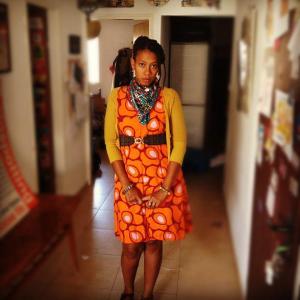
Poets of Babel (© Shoshana Sarah 2012)
I believe in messages from the universe. At least over a year ago, I decided that I wanted to start a poetry club. Then, I did nothing…until today.
Last Thursday, I met with two of the most awesome people I know, Marc, a former break dancer/polyglot MC turned design engineer and Nadine, a jeweler who is petite in stature but huge in spirit. After talking the night away at La Champa, on the subject of poetry versus hip hop, and discovering for the first time that Nadine writes also, (“I love you even more!” I exclaimed) she said, “We should start a poetry club.”
“I’ve been wanting to start a poetry club for ages,” I replied.
In the shower, the next day, while shampooing my hair, I received it:
Poets of Babel. ‘A place where poets would not be limited in participation based on their mother tongue or the language they chose to write poetry in.’ 99% of the people I know are at least bilingual and I would want anyone who’s a poet there. ‘If you’ve got a friend who understands what you wrote, bring him,’ I thought. Then, while rinsing, the perfect tag line came to compliment the name of the club: “Poets of Babel: If you are a poet, we speak the same language.”
Perfect.
Meanwhile, in the world of Facebook, I’d been tagged in a book review. The poor author’s novel had been torn to shreds by the critic, but one line stood out:
“Every single character talks in exactly the same idiotically macaronic way, and 500 pages into it, you are still trying to remember which humourless pundit is which.”
This is because, as I’m not too proud to admit, I did not know what macaronic meant. And, yes, it does come from the same root as macaroni.
I share with you my new found knowledge:
mac.a.ron.ic
Definition of MACARONIC
1
: characterized by a mixture of vernacular words with Latin words or with non-Latin words having Latin endings
2
: characterized by a mixture of two languages
— macaronic noun
Origin of MACARONIC
New Latin macaronicus, from Italian dialect maccarone macaroni
First Known Use: 1638
(http://www.merriam-webster.com/dictionary/macaronic)
Macaronic is the written form of another term I was familiar with: code-switching. I, and most people I know in Israel, engage in code-switching, the practice of moving back and forth between two languages or between two dialects or registers of the same language.
It was while reading everything I could online about macaronic usage that I discovered my new hero: Antoine Cassar, a Maltese poet and translator. His multilingual poem Merħba was the Grand Prize winner of the United Planet Writing Contest in 2009.

Merhaba, a poem of hospitality
(The cover photographs of a Tibetan child were taken by
United Planet’s Founder and Executive Director, David Santulli.
United Planet is an international non-profit organisation based
in Boston, USA, which carries out social and educational
development projects in five continents. For more information,
visit http://www.unitedplanet.org.)
Here is how his website describes the poem:
“Merħba, a poem of hospitality is a narrative, musical homage to the unfailing and unconditional hospitality and warmth that welcome travellers the world over, despite the tragedies and hardships lived by families and communities on a daily basis. It is at once a celebration and a lamentation of our colourful, shrinking planet and of our common yet conflicting humanity.” (http://antoinecassar.wordpress.com/merhba-a-poem-of-hospitality-2009/)
There is a link to a free download of the poem.
I downloaded it.
I read it.
I loved it.
I fell in love with it.
I couldn’t even understand all of it but loved it despite, or more likely, because.
I love that man, Antoine Cassar, without ever having met him, for he has combined my loves.
~Poetry and Language all wrapped up in Oneness~
Now, I smile, because I have heard the message from the universe and I will not ignore it. Having just returned from Malta two months ago, which was also a stroke of fate, it all made even more sense. I will read Merħba at the opening event of Poets of Babel. I don’t know if Antoine Cassar will ever hear of us, but I am confident that he would approve…
for if you are a poet, we speak the same language.




